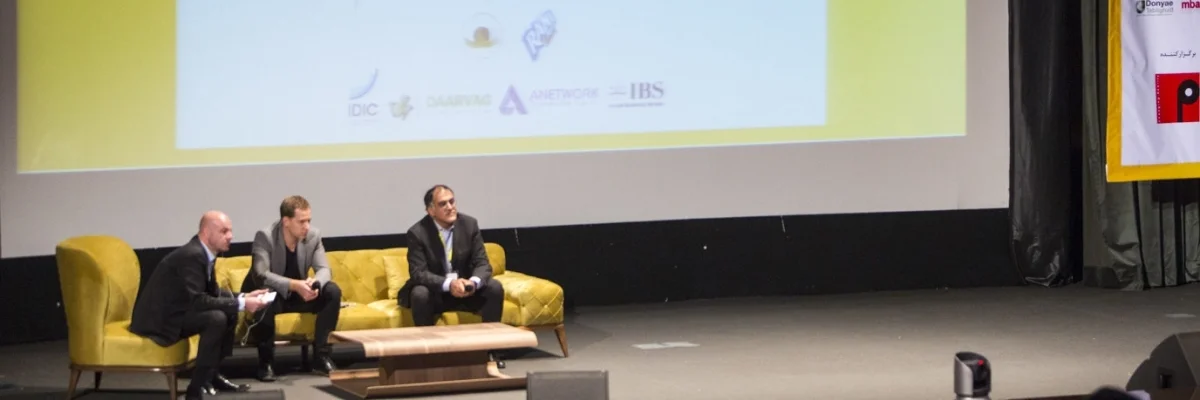Business Diplomacy Management: A Must-Have Skillset for Iran
As nuclear negotiations conclude and an opening to Iran’s market looms, Western companies with interests in investing in Iran need to prepare their entry strategies carefully. Beyond normal business considerations, Western companies may face challenges with obstacles emanating from outside of their direct sphere of control. To plan beyond “business as usual,” I propose that they consider applying the competencies of Business Diplomacy Management.
After so many years of strained international relations, foreign companies need to understand that Iran comes with a history fraught with political tensions that may impede business as usual. A British and American backed coup forcefully removed the democratically elected Mossadegh in 1953 to reinstall the Pahlavi Shah, who was himself subsequently removed in the Islamic revolution in 1979. Since then relations between the new Islamic Republic of Iran and Western countries have been frosty. The recent JCPOA agreement must be understood within this context.
What is Business Diplomacy?
Business diplomacy focuses on creating an environment suitable for business and reducing risk and uncertainty. It requires that Western companies understand the historical factors which influenced Iran’s economic, political-military, social and cultural forces as they all affect business in Iran today.
Diplomacy and business are not incompatible nor are they totally different. Professional boundaries between business and diplomacy have gradually become blurred especially after the end of the Cold War period. States are championing economic development and trade relations in today’s global economy which is increasingly interconnected and interdependent. Governments use economic and commercial diplomacy to represent their interests abroad and at home. However, companies are less aware that they need to develop their own diplomatic competencies in order to be successful abroad and to be less dependent on information and guidelines provided by their embassies.
Charges d’affaires or economic and trade advisors at embassies routinely read local press, meet with economic decision-makers and write briefs. These briefs are eventually passed on to the private sector by way of the ambassador. Today, the role of these briefs is no longer as important as it once was as similar information can be gathered by local corporate agencies. Multinationals regularly employ agents with local knowledge not only to gather information, but also to act as facilitators in their dealings with local authorities.
Applied to Iran, western companies investing and planning to operate in Iran should anticipate that their managers will be asked to represent their company and communicate to government officials, business partners and non-business stakeholder groups what their company is intending to do in Iran, how the products and services will help Iran’s economy to grow and how their investment will contribute to improving Iranian society at large.
The function of business diplomacy management should be placed close to other core functions of a company investing in Iran. In addition to this, the diplomatic know-how should be a company-wide responsibility and that the business diplomacy function should be under direct supervision of the CEO.
Business Diplomacy Management: The “must have” skillset for foreign investors
The success of any foreign firm’s future investments in Iran will depend not only on commercial prowess but also on sufficient support from the Iranian government. Unlike many other comparable markets, success will also depend on how the foreign investor interacts with non-business counterparts. A foreign investor has to be able to look for commonality of interests while at the same time be able to agree to disagree without falling into the trap of carrying out disagreements through conflicts. In other words, investors moving to Iran need to acquire diplomatic skills to manage the many differences between Iranian and Western business and societal contexts.
Iran’s non-business stakeholders can be very problematic for a foreign investor if the investor does not know how to respond to these non-business stakeholders in a competent and appropriate way. Business diplomacy management is for instance called for to constructively engage consumer groups, religious leaders, or powerful forces like the Revolutionary Guards who run their own businesses and are used to receive a share of Iranian companies’ profits while making the lives of local producers or retailers difficult.
As a consequence of the normalisation of economic and political relations, Iranian firms will face foreign investment and competition in their home markets while at the same time still being asked to pay a kind of licence or protection fee to the Revolutionary Guards. Hence they will be hard pressed to compete against foreign competitors and orient their business towards a more long term business venture.
Being faced by foreign competition and continuous quasi-tax costs, local firms might act very opportunistically and hence might not always be able to honour agreements with Western business partners. Non-execution of commercial agreements might follow generating a sense of insecurity on the side of the Western investor who cannot read the factors that might have led to non-traditional business practices by Iranian counterparts and who might decide to withdraw from Iran in case of broken promises or abrupt change of commitments.
The following skills and knowledge could be useful to a Western investor planning to invest in Iran:
Basic grasp of Iran’s history, specifically its modern economic history, and legal systems.
Cultural awareness, especially with regard to decision making and social norms.
Familiarity with the diplomatic process that led to resolution in the Iranian nuclear talks.
The ability to represent one’s own company in an Iranian context, with considerations for Iranian counterparts, the media, and informal pressure groups
Strategy, tactics, and procedures of negotiations with Iranians as well as recognition of Iranian negotiation behavior.
Implementing Business Diplomacy Management at Firm Level
Diplomatic know-how at the firm level of a Western investor has to be a strategic core competency as defined by Hamel and Prahalad:
“A core competence represents the sum of learning across individual skill sets and individual organizational units. Thus a core competence is very unlikely to reside in its entirety in a single individual or small team.”
Diplomatic know-how should hence be seen as a company-wide responsibility shared by top management and the respective heads of business units. In order to realize this core competence, I suggest that global companies should create a business diplomacy management function consisting of the following elements namely:
Business Diplomacy Office with a dedicated and specially trained staff answering directly to the CEO, or the most senior manager directly responsible for Iran.
Business Diplomacy Liaison in Iran directly reporting to the top manager of the central Business Diplomacy Office at headquarters.
Business Diplomacy Management Information System which contains information pertaining to Business Diplomacy (including the profiles of active non-business stakeholders at the global level and in potentially conflictual areas in Iran).
Development of a business-related socio-political perspective (e.g., Iranian stakeholder analysis).
Mandate to strengthen the overall organizational capacity in business diplomacy management at foreign owned Iran subsidiary.
Positioning the new Business Diplomacy Office under the direct supervision of the CEO should facilitate the gate keeping function of this new unit whose function is to scan the environment, interact with non-business stakeholders and engage in diplomatic missions under close direction of the CEO. Further strengthening of values and ethics linked to business diplomacy could be expected from CEOs who take an active interest in this strategically important function and accordingly support the new office’s operations through appropriate rewards and sanctions and corresponding internal communication campaigns.
Taking care of business diplomacy and ensuring competent application of business diplomacy management would greatly increase the chances of foreign investors to embark on a business venture in Iran that will be sustainable and fruitful for all parties involved in such a post-treaty undertaking.
Photo Credit: The New Yorker




